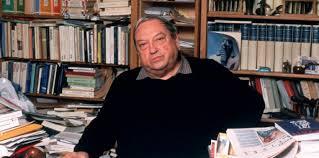Medievalist Le Goff, Leading Figure in 'New History', Dies at 90

Frenchman Jacques Le Goff, one of the most influential medieval historians of modern times, died in Paris on Tuesday aged 90, his family told newspaper Le Monde.
Over a long career in academia and public broadcasting, Le Goff transformed views of the Middle Ages from a dark and backward time to a period that laid the foundations for modern Western civilization.
He was a leading proponent of "New History" -- the shift in historical research from emphasis on political figures and events to mentality and anthropology.
Outside the halls of academia, Le Goff hosted a weekly history program on France Culture public radio and even acted as a historical adviser on films, including the 1986 adaption of Umberto Eco's "The Name of the Rose" starring Sean Connery.
Born January 1, 1924 in Toulon, Le Goff studied in top schools before taking a teaching position and eventually heading up the Paris-based School for Advanced Studies in the Social Sciences (EHESS).
He was editor-in-chief of the highly influential journal "Annales" -- the bible of historians who stress long-term social research.
His many books included works on Middle Age intellectuals, bankers and merchants, a biography of King Louis IX and a seminal work on the introduction of the concept of Purgatory.
"By transforming our view of the Middle Ages, you have changed the way we deal with history," Le Goff was told when awarded the prestigious Dr. A.H. Heineken prize for history in 2004, whose jury described him as "without doubt the most influential French historian alive today".
As a young researcher in Prague, Le Goff witnessed the Communist takeover of Czechoslovakia in 1948 and throughout his life he was a frequent commentator on current events, as a committed left-winger, agnostic and pro-European.



